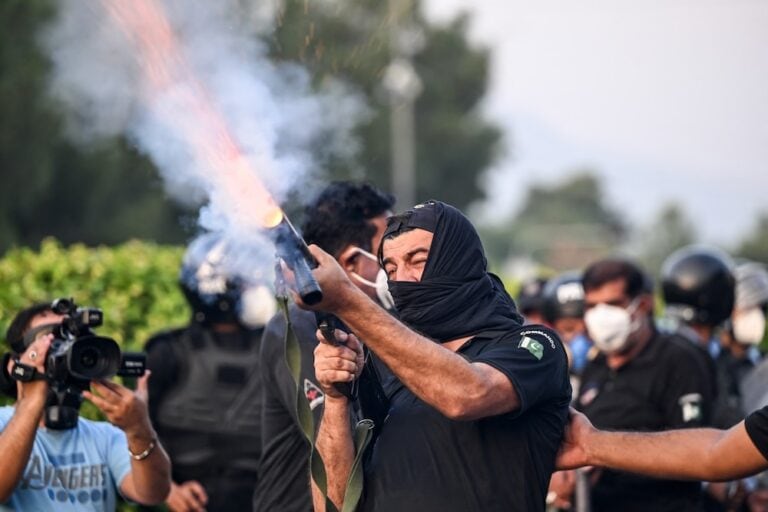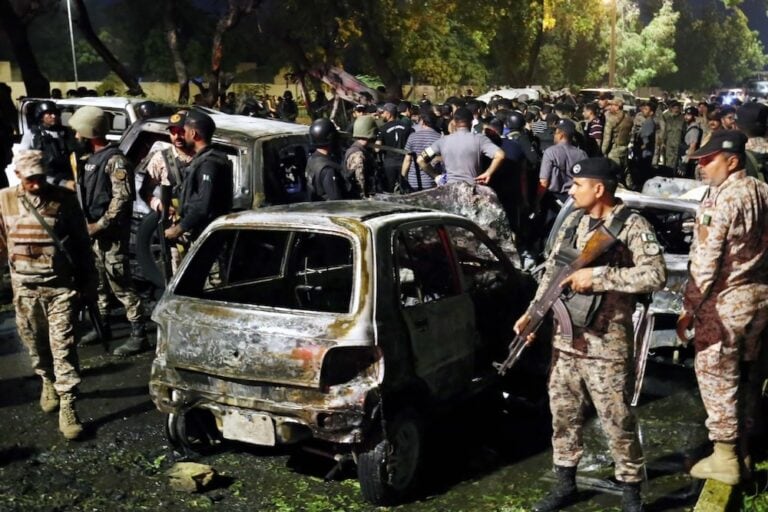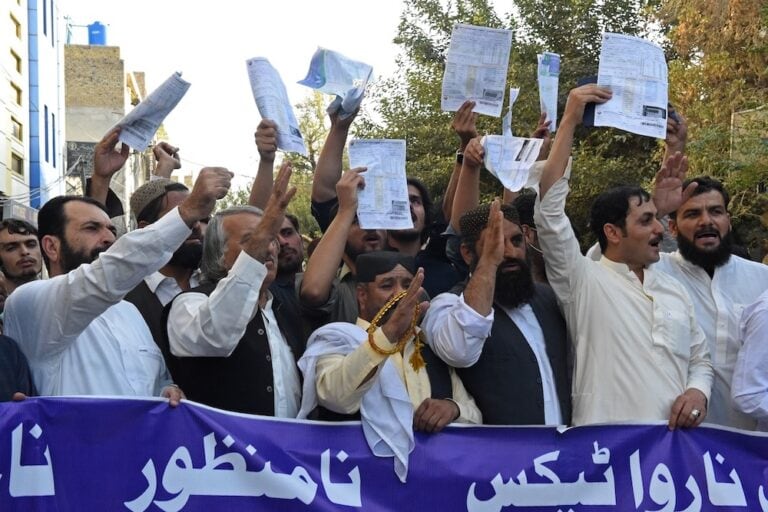In an unprecedented attack on freedom of the press on 29 June 1995, the government of Pakistan banned six mass circulation Urdu language daily newspapers of Karachi for a period of 60 days. Five of the banned newspapers, “Public”, “Qaumi Akhbar”, “Evening Special”, “Aghaz” and “Awam” are evening papers, and one, “Public”, publishes morning and […]
In an unprecedented attack on freedom of the press on 29 June
1995, the government of Pakistan banned six mass circulation Urdu
language daily newspapers of Karachi for a period of 60 days.
Five of the banned newspapers, “Public”, “Qaumi Akhbar”, “Evening
Special”, “Aghaz” and “Awam” are evening papers, and one,
“Public”, publishes morning and evening editions, both of which
have been banned. One of the banned papers, “Evening Special”,
belongs to the government-owned Mashriq group of newspapers.
This is the first time in the history of Pakistan that such a
harsh step has been taken against so many newspapers
simultaneously. The ban will directly affect nearly 1000
journalists and press workers and about 2000 newspaper hawkers.
According to press reports, both President Farooq Leghari and
Prime Minister Benazir Bhutto knew about this action by the Sindh
provincial government.
The papers have been banned under the Maintenance of Public Order
(MPO) law of 1960. A team of police and administration officials
raided the newspaper offices to serve the order and also seized
printed copies and printing plates from some of the offices. The
same order which was served on all six newspapers stated that the
reason for the action was the “printing of sensational news which
is an activity prejudicial to the maintenance of public order.”
The MPO restricts authorities to impose a ban for a maximum of 60
days in the first instance, but it can be further extended if
desired.
Major press organisations have expressed profound shock and
disbelief over the decision to impose the blanket ban on evening
newspapers without any notice. In a statement, Hameed Haroon,
General Secretary of Pakistan Newspapers and Periodicals
Organisation (PNPO), said the action was aimed at destroying the
vernacular evening press in Karachi. He warned the government
that “rumours of the most poisonous variety will replace the
voice of the vernacular press and play havoc with the fabric of a
strife torn city poised on the precipice of a full scale
insurgency.”
Mahmudul Aziz, Senior Vice President of the Newspaper Editors
Council of Pakistan (NECP) has expressed “deep anguish and
concern” over the government action. He said the action runs
contrary to the guarantees on press freedom enshrined in the
constitution of Pakistan.
Karachi Union of Journalists (KUJ) President Abdul Quddus Faiq
and Secretary A.H. Khanzada condemned the ban and said it would
render hundreds of newspaper employees jobless. An emergency
meeting of representative organisations of journalists, newspaper
owners, editors and hawkers will be held this evening to review
the situation.
Recommended Action
Send appeals to Pakistani authorities:
Appeals To
Prime Minister Benazir Bhutto
Office of the Prime Minister
Islamabad, Islamic Republic of Pakistan
Fax: +92 51 821 574 or +92 51 825 835
President Farooq Ahmad Ken Leghari
Office of the President
Constitution Avenue
Islamabad, Pakistan
Fax: +92 51 816 060 69
Please copy appeals to the originator if possible.


